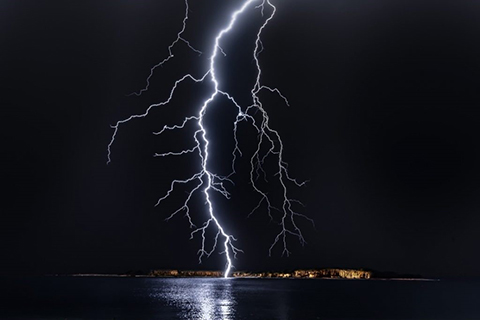Tips to Help You Prevent Storm Damage to Your Home
Storm damage can have a high emotional and financial cost. It can lead to unexpected expenditures for the purchase of new household materials, of house repairs, and even medical treatment for an injured person.
The effects of storm damage can be very tragic. Fortunately, there are preventative measures you can do to be safe and protect your home if you live in a place prone to storms.
We’ve got some tips to help you prevent storm damage to your home including –
Check Your Landscape
The best way to prevent storm damage in your home is to consider the landscaping in your yard. Landscaping is a great way to give an instant face-lift to your property, but doing it without thinking about the flow of water and making sure it’s not blocked can have severe consequences.
Consulting landscape experts can help you design a safe landscape for your home and avoid water damage from heavy rainfalls. The landscape should have a drainage system so excess water will flow off quickly, leaving no room for flooding or any form of water damage.
Check Your Drainage
Checking your drainage regularly will not only ensure a healthy environment but also prevents the household from experiencing water damage.
Heavy downpours often send large amounts of water flowing through the drains at a rapid rate. Unfortunately, if your gutter is clogged with debris, you risk having water damage. This situation is worsened when there’s a heavy storm with flood warnings.
Clean up your gutters so water can flow through them freely and make sure drains are directing water away from the house. This will significantly reduce the chances of your home succumbing to flood damage.
Protect Your Foundation
The foundation of a house matters a lot in successfully withstanding a heavy storm. Protect your foundation to ensure that your house stands the test of heavy downpours when the time comes.
Check your foundation for the following issues:
- Make sure the ground that surrounds your house’s foundation slopes downward from it so water can flow away from the house instead of pooling around it.
- Look for cracks or breakages and get them fixed immediately.
- Check for water pooling close by the house and clear it. Find a way to redirect future water flow so it doesn’t collect there again.
- Consider filling areas of potential water pooling with dirt, but don’t allow this to clog the drainage system.
Run a Full House Check
Perform general house maintenance on any places where things, especially water, could get into the house. Doors and windows should be checked regularly. Also, it’s pertinent you check the roof to repair or replace any loose shingles.
Secure your furniture, both indoor and outdoor furniture. Check your entire yard for anything else that needs secured or covered to prevent damage.
If you’ve got trees, check their health condition. A dying tree might fall and crash into your home during a particularly heavy storm. Are there any branches that look dead or loose? Trim or cut down any such trees beforehand.
Stay Up to Date With Weather News
Mother Nature can be vicious and unpredictable. A daily weather forecast and severe weather alerts can give you warning when a storm is coming. You can get this information and set up alerts on apps, various meteorology or news website sites, tv, or the radio; you can also buy a weather radio and program it to notify you only when alerts are affect your county and surrounding areas.
You can’t fight nature. But you could use the heads up wisely and get your home ready to withstand the oncoming storm. Then when the storm passes, hopefully the damage to your home is very little to none, and you’re safe inside.
If your house has ever been severely affected by a storm, you probably need expert help to restore it and add preventative measures so it’s strong enough to withstand the next storm. Reach out to us at Integrity Restoration Services. Our services include storm damage and water damage repair services. We also offer fire damage and mold remediation services.
Contact us on our website or call (770) 966-9987 for more information.

